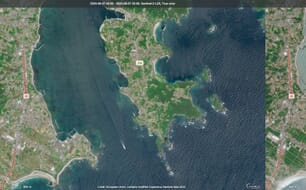Russia’s Federal Agency for Fishery (Rosrybolovstvo) has unveiled plans to expand the aquaculture area of the country’s Primorsky Krai region to some 27,500 hectares. The move is part of the authorities’ efforts to boost the region’s aquaculture industry.
The region has a population of about 2 million, and borders China and North Korea, as well as the Sea of Japan. Last year its fish and seafood production totalled only about 6,870 tonnes. However, this represented a robust increase of 39% compared with a year earlier, indicating the significant growth potential of the aquaculture industry, the state-run agency said in a statement.
Over the past years, the region has attracted a number of aquaculture investments by various foreign companies. Primorsky Krai’s fish and seafood production includes mussels, scallops and sea cucumbers. The Rosrybolovstvo also distributes crab catch quotas in the region.
Since the second half of 2015, when the Russian authorities launched their programme to increase Primorsky Krai’s aquaculture potential, about 23,500 hectares have been allocated for aquaculture in the region, according to data from the state-run agency. Currently, the region comprises more than 2,600 aquaculture areas with a total surface of some 172,000 hectares. Under the plan, the 27,500 hectares of new aquaculture area are to be distributed to potential domestic and foreign investors through auctions. To date, 212 such auctions have been carried out to distribute aquaculture sites in the region, the institution said.
The Rosrybolovstvo added that its ongoing campaign to boost the aquaculture industry in Russia’s Far East will be further discussed at the forthcoming conference on state-supported aquaculture and the authorities’ plans in this field until 2030. The event is to be held in Rostov-on-Don on 28 and 29 June.


